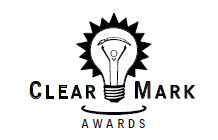About the writing guide
We strongly encourage the use of clear, concise and inclusive language. It's more accurate and makes it easier for all residents, regardless of education or literacy, to access essential county services.
ClearMark Award
Hennepin County has won two ClearMark Awards from the Center for Plain Language.

Questions or feedback about the writing guide?
Contact Brian Lieb at brian.lieb@hennepin.us.
Updates to the writing guide
New international plain language standards
The International Organization for Standardization (ISO) formally approved its first international plain language standard. The new standard will help improve written communication for everyone. This is particularly important in legal, health, public policy, government and corporate communications, where information influences critical decisions and people’s rights. Read the official press release.